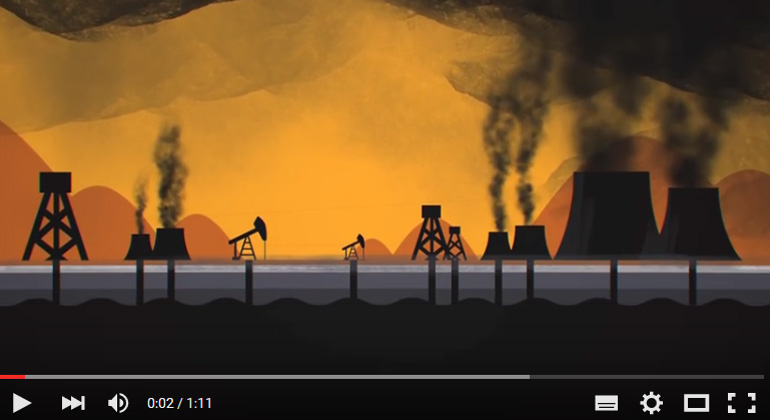G20 providing $452bn a year on fossil fuel production subsidies – despite pledge to remove them and take action to limit climate change
G20 governments are handing out approximately $452 billion a year to prop up the production of fossil fuels – despite pledges to phase out subsidies and prevent catastrophic climate change.
A new report by the Overseas Development Institute and Oil Change International has for the first time gathered detailed information on G20 subsidies to oil, gas and coal production.
In the report, “Empty Promises: G20 subsidies to oil, gas and coal production”, researchers found G20 support to fossil fuel production alone ($452 billion) was almost four times the entire global subsidies for renewable energy ($121 billion).
This support comes despite the global imperatives to keep three quarters of current fossil fuel reserves in the ground and declining returns in coal and new hard-to-reach oil and gas reserves.
The report, published ahead of the G20 summit in Antalya, Turkey, examines three types of G20 government support in 2013 and 2014 – the most recent years with comparable data. It looks at national subsidies extended through direct spending and tax breaks; investment by state-owned enterprises both domestically and internationally; and public finance extended through – for example – loans from government-owned banks and financial institutions.
The other key findings of the report are:
- G20 governments provided almost $78bn a year in national subsidies for fossil fuel production; G20 state-owned enterprises invested $286bn, and public finance was estimated to average a further $88bn a year in 2013 and 2014
- Japan provided more public finance for fossil fuel production in 2013 and 2014 than any other G20 country, averaging $19bn per year, with $2.8bn per year in coal finance alone
- The United Kingdom stands out as the only G7 nation significantly ramping up its support for the fossil fuel industry, with even more tax breaks and industry support handed out to companies operating in the North Sea in 2015
- The United States provided more than $20bn in national subsidies alone, despite calls from President Obama to scrap support to oil, gas and coal. Certain tax breaks in Alaska are so significant that, in the case of one production tax, the state is handing out more to companies than the tax generates in revenue for the state
- Australia and Brazil both provided approximately $5bn in national subsidies, including for development of fossil fuel resources in increasingly remote and challenging areas
- Russia provided almost $23bn in national subsidies, the highest of all G20 countries
- China’s investment in fossil fuel production at home and abroad, through its state-owned enterprises, far exceeded any other G20 country, amounting to almost $77bn annually
- Investment by G20 state-owned enterprises in fossil fuel production is highly significant. G20 governments have a tremendous opportunity to meet the climate challenge by shifting the investment of state-owned enterprises away from fossil fuel production, toward clean energy
- Turkey – G20 host – is giving tax breaks to support its programme of building more coal plants than any other OECD country potentially raising its own greenhouse gas emissions by 94% over the next 15 years
Shelagh Whitley, of the Overseas Development Institute, said: “G20 governments are paying fossil fuel producers to undermine their own policies on climate change. Scrapping these subsidies would rebalance energy markets and allow a level playing field for clean and efficient alternatives.”
Stephen Kretzmann, director of Oil Change International, said: “Continuing to fund the fossil fuel industry today is like accelerating towards a wall that we can clearly see. G20 leaders need to slow down and turn us around before we hit climate disaster.”
At the end of September 2015, the U.S. and China jointly prioritized the establishment of a concrete deadline for the phase-out of fossil fuel subsidies as a key task during China’s G20 presidency in 2016.
In line with this momentum, the report recommends G20 governments adopt strict timelines for the phase out of fossil fuel production subsidies, increase transparency through improved reporting of fossil fuel subsidies, and transfer government support to wider public goods including low-carbon development and universal energy access.
Source
Overseas Development Institute – ODI – Shaping policy for development 2015








